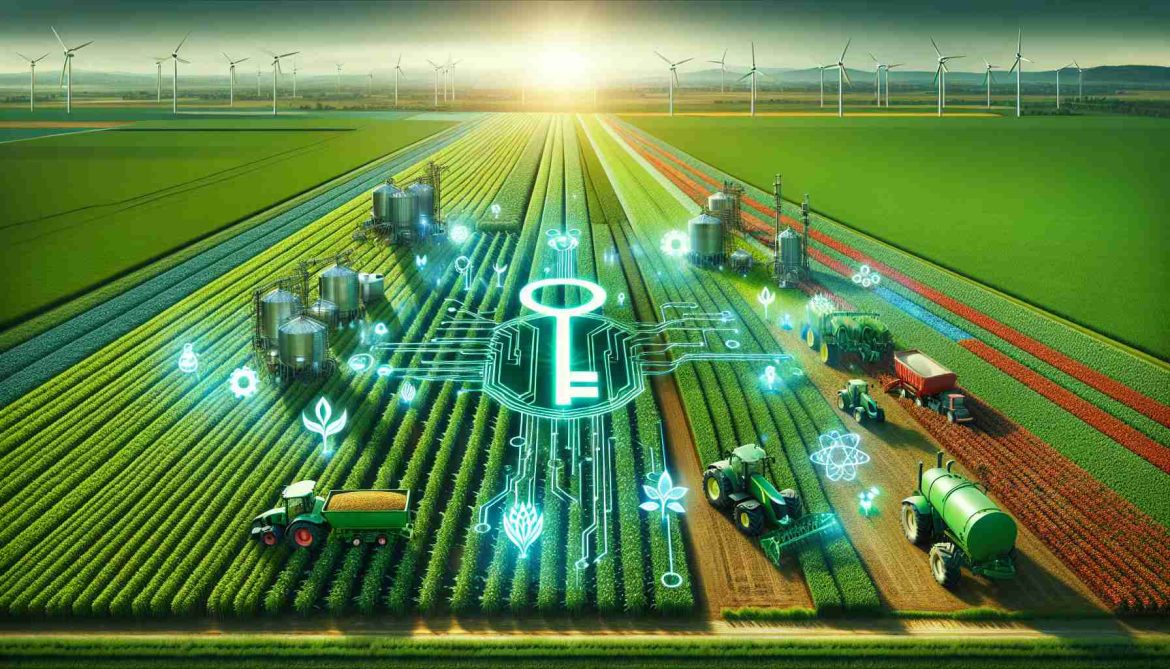Revolutionizing Food Production
Agricultural biotechnology represents a groundbreaking fusion of science and farming, aimed at enhancing crop production, efficiency, and sustainability. This innovative field employs advanced techniques to modify organisms, leading to the creation of genetically modified organisms (GMOs) that can boost yields, withstand pests, and prevent diseases. With the global population surge, these biotechnological advancements are crucial for addressing food security challenges.
Recent reports reveal that the global agricultural biotechnology market was valued at approximately USD 151 billion in 2023 and is set to soar to around USD 347 billion by 2031, reflecting a compound annual growth rate (CAGR) of nearly 11% from 2024 to 2031. The rising demand for GM crops, including pest-resistant options and drought-tolerant varieties, drives this growth, along with increasing investments from governments into biotechnology solutions.
Currently, North America leads the market, spearheaded by the United States, renowned for its robust GMO development ecosystem. Meanwhile, Asia-Pacific countries like China and India are also rapidly expanding their biotech initiatives to ensure food security for their populations. While Europe has a smaller share due to its stringent regulations, advancements like gene editing are anticipated to stimulate growth.
As agriculture continues to evolve, these biotechnological innovations promise to revolutionize farming practices and enhance food production’s sustainability, paving the way for a secure future.
The Future of Farming: How Agricultural Biotechnology is Shaping Global Food Security
Agricultural biotechnology is at the forefront of innovation in food production, merging advanced scientific techniques with traditional farming practices to improve crop yields, enhance efficiencies, and promote sustainability. As the global population edges towards an estimated 9.7 billion by 2050, the need for more effective agricultural solutions becomes ever more critical.
### Key Features of Agricultural Biotechnology
1. **Genetic Modification**: Agricultural biotechnology utilizes genetic engineering to develop genetically modified organisms (GMOs) that can resist pests, tolerate drought, and fight diseases. This not only increases productivity but also reduces reliance on chemical pesticides and fertilizers.
2. **Gene Editing**: Advanced techniques such as CRISPR-Cas9 are transforming agriculture by allowing precise edits to crop genomes. This leads to varieties that can thrive under changing climate conditions without introducing foreign DNA, addressing regulatory concerns.
3. **Bioinformatics**: The integration of bioinformatics enables better data analysis and crop modeling, leading to optimized breeding strategies and more resilient crop varieties.
### Pros and Cons of Agricultural Biotechnology
**Pros**:
– **Increased Yields**: GMOs often exhibit higher productivity, which is crucial for feeding a growing population.
– **Sustainability**: Reduced use of pesticides and fertilizers due to pest-resistant and nutrient-efficient crops contributes to environmental conservation.
– **Food Security**: Enhanced crop resilience ensures stable food supplies, particularly in fluctuating climatic conditions.
**Cons**:
– **Regulatory Challenges**: Many regions impose strict regulations on GMOs, hindering adoption and market growth.
– **Market Acceptance**: Consumer resistance to GMOs, driven by safety and ethical concerns, can limit market penetration.
– **Biodiversity Risks**: The proliferation of specific GM crops may lead to reduced genetic diversity in agriculture.
### Market Insights and Trends
Recent analysis indicates that the global agricultural biotechnology market is poised for significant growth. Valued at approximately USD 151 billion in 2023, it is projected to reach around USD 347 billion by 2031, with a compound annual growth rate (CAGR) of nearly 11% between 2024 and 2031. Key drivers include the rising demand for sustainable farming practices and increased investment from governments in biotechnological solutions.
### Regional Developments
– **North America**: The United States remains a leader in agricultural biotechnology, thanks to its established infrastructure and research capabilities.
– **Asia-Pacific**: Countries such as China and India are ramping up their biotechnological efforts to enhance food security, focusing on both research and commercialization of biotech crops.
– **Europe**: Despite having stringent regulations that slow the adoption of GMOs, advancements in gene editing technologies could pave the way for future growth in this market.
### Use Cases and Applications
1. **Drought-Resistant Crops**: Biotech crops developed to withstand drought conditions are essential in regions facing water scarcity.
2. **Nutrient-Enriched Foods**: Some biotechnological innovations focus on fortifying crops with essential nutrients, improving public health outcomes.
3. **Sustainable Practices**: Biotechnology is paving the way for more sustainable farming practices by reducing inputs and increasing the efficiency of resource utilization.
### Looking Ahead: Predictions and Sustainability
As agricultural biotechnology evolves, the possibilities for sustainable food production are immense. It is anticipated that innovations in this field will resolve many of the challenges posed by climate change and population growth. Continued investment in research and development will likely spur breakthroughs that could redefine the agricultural landscape.
For further insights into the world of agricultural biotechnology, visit IBTimes.
### Conclusion
The potential of agricultural biotechnology to contribute to global food security and sustainability is vast. As technologies advance and more nations embrace these innovations, the landscape of food production will be transformed, ensuring that the world’s nutritional needs are met now and in the future.


